Every firm is at risk. Strategies can easily become worthless when the market, rules, supply chain, or customer expectations change. Companies that can adapt quickly fare better than those that can't. Being flexible means being able to make changes quickly while still maintaining everything in order. But it's hard for many businesses to stay adaptable when their products don't operate together. When information is spread out and processes don't connect, teams spend more time getting ready than they do responding.
The best project management tools help you get ready. By combining communication, analytics, and execution, they give businesses the structure they need to move rapidly when things go tough. One of these platforms is Lark. It gives teams tools that not only minimize risk but also turn uncertainty into opportunity.
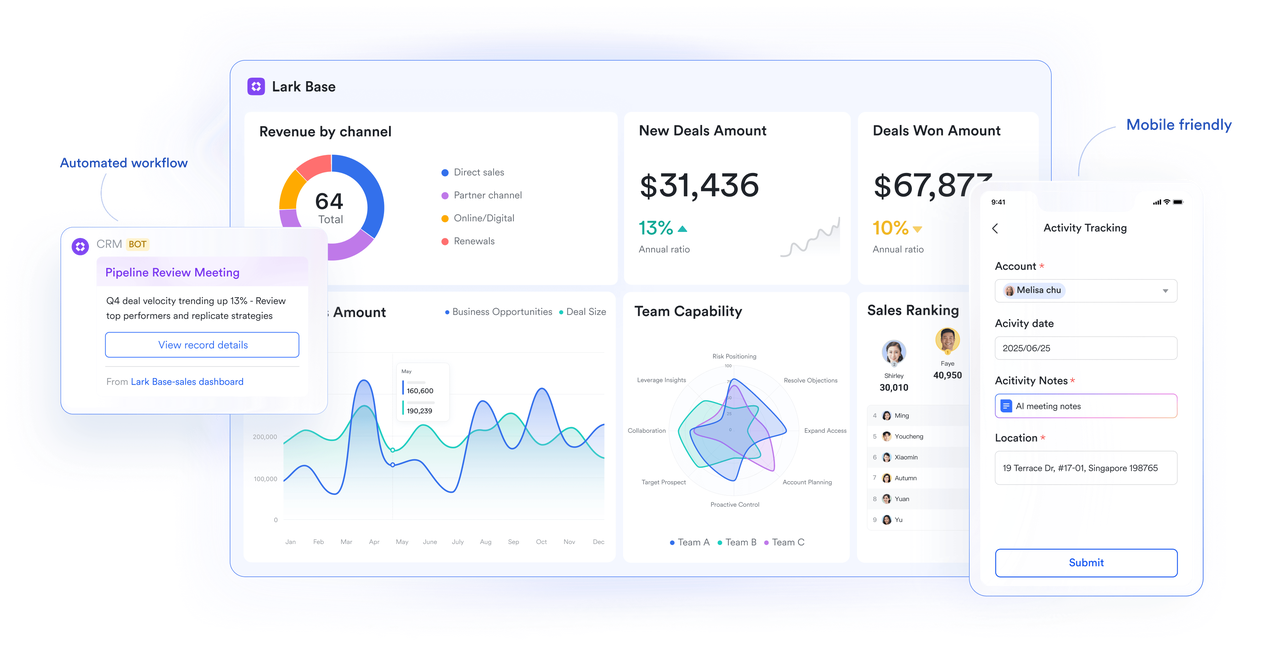
Base has functions that are comparable to a CRM app so that the salespeople might be able to keep track of customer communications, document pipelines, and leads in real time. Having all of their expenditures and supply chain data in one place is excellent for both finance and operations. This helps you make a decision and reduces down on areas where you can't see.
Dashboards display how things are doing right now, and linked records make sure that everything keeps working smoothly when things change by linking actions that are related to each other. Kanban and Gantt are two ways to look at things. This enables departments to do things their own way without becoming out of sync. Base gathers data from a lot of different places and puts it together in a way that helps businesses prepare ready.
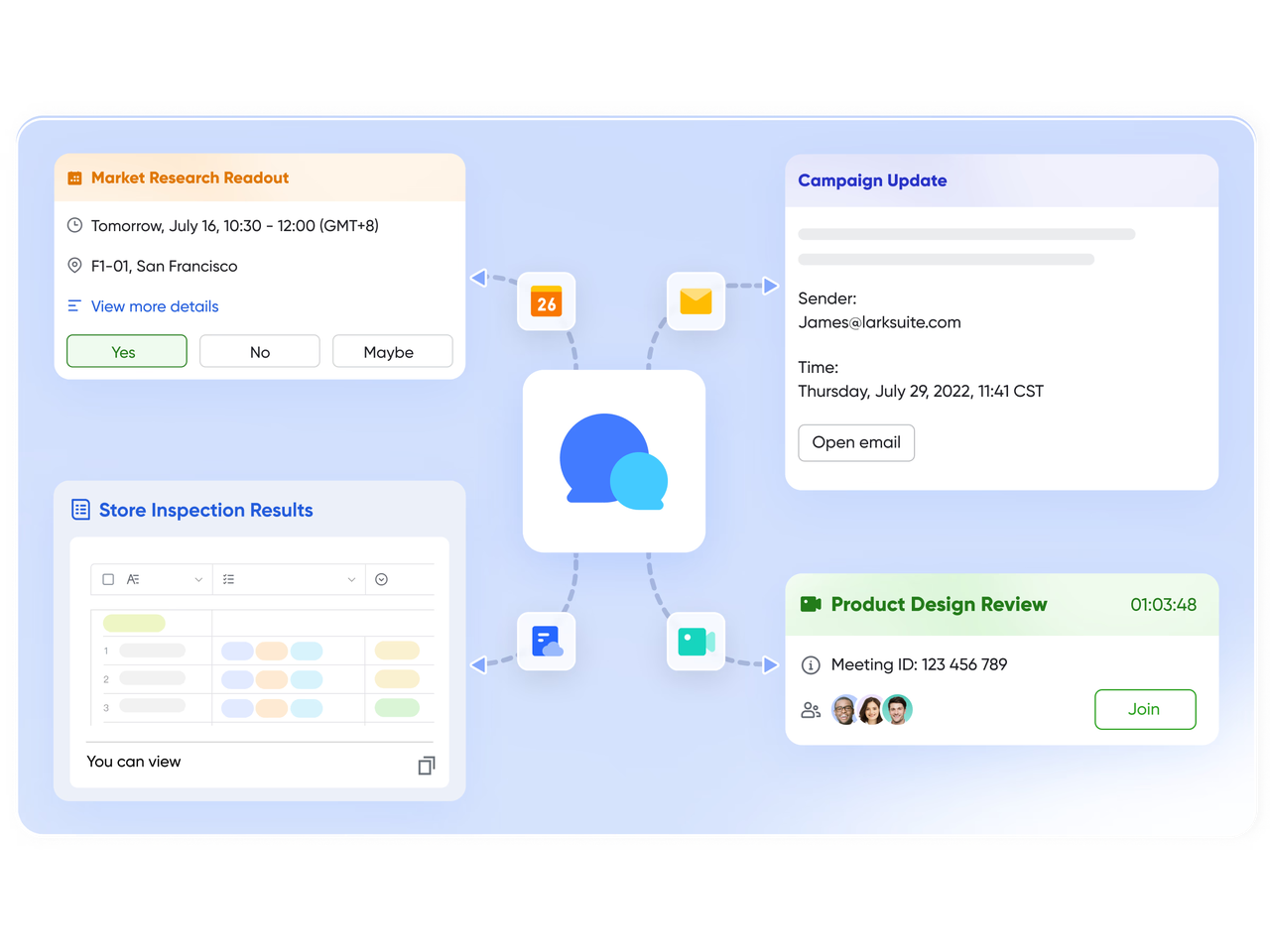
Threaded discussions let people keep talking about certain projects or tasks that need to be done in order to deal with a crisis. Pinned messages make sure that critical changes are not missed, and mentions bring the right people into the conversation right immediately. Built-in translation lets people from all over the world work together without having to worry about language issues. Messenger's direct connection to Base and Tasks is the most important thing. This means that a message about a problem can immediately turn into an action item that can be tracked. This makes sure that talking to people helps them get ready instead of making things worse.
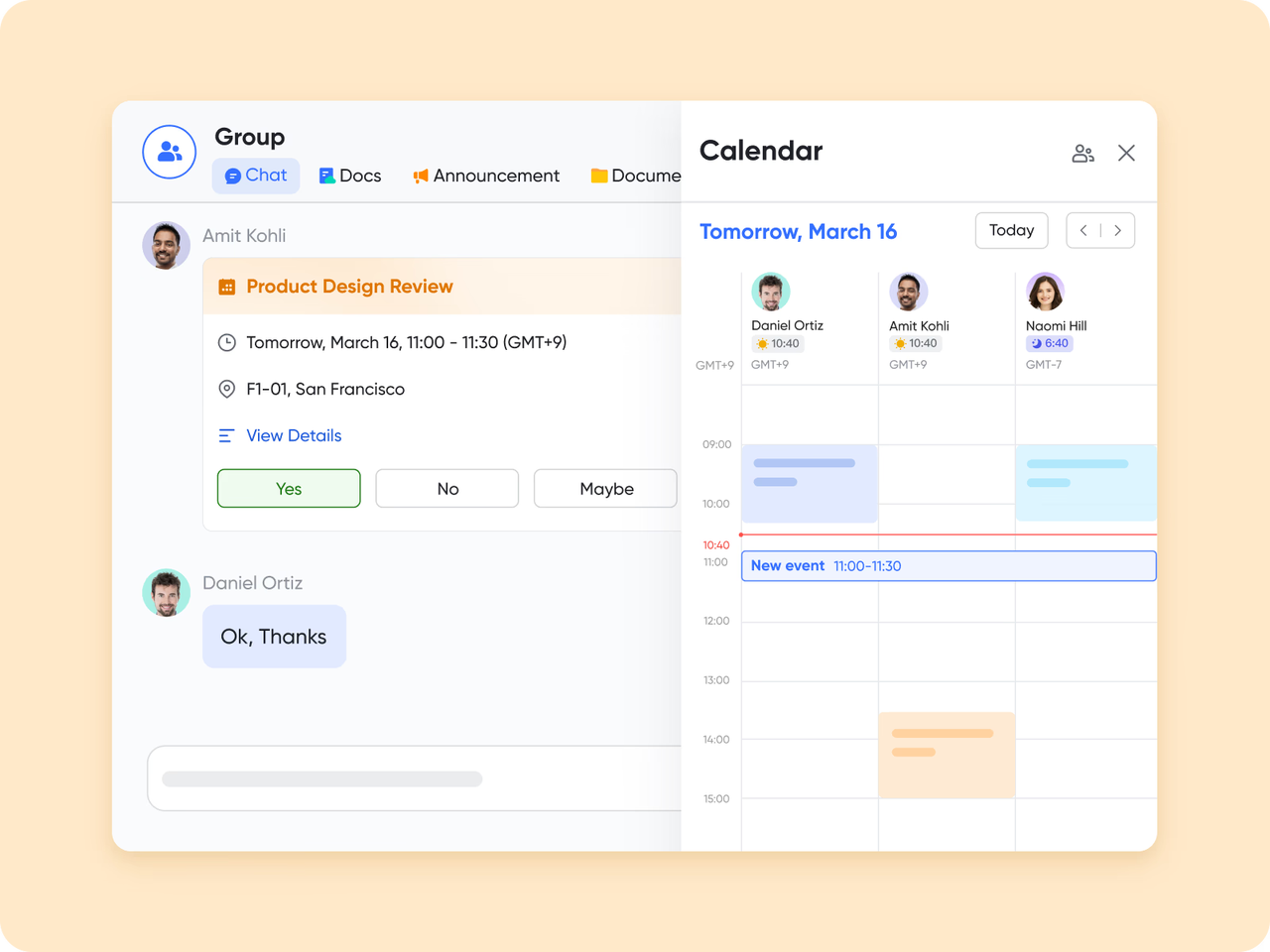
Calendars that everyone can see show important dates and milestones that everyone can see. Automatic time zone conversion makes sure that people from different regions of the world are on the same page, and reminders assist people remember what they have to do. Base data or Docs are directly linked to events, which gives users the information they need to make choices. Calendar makes it easier for companies to modify their priorities or move resources around, which keeps things predictable when it matters most.
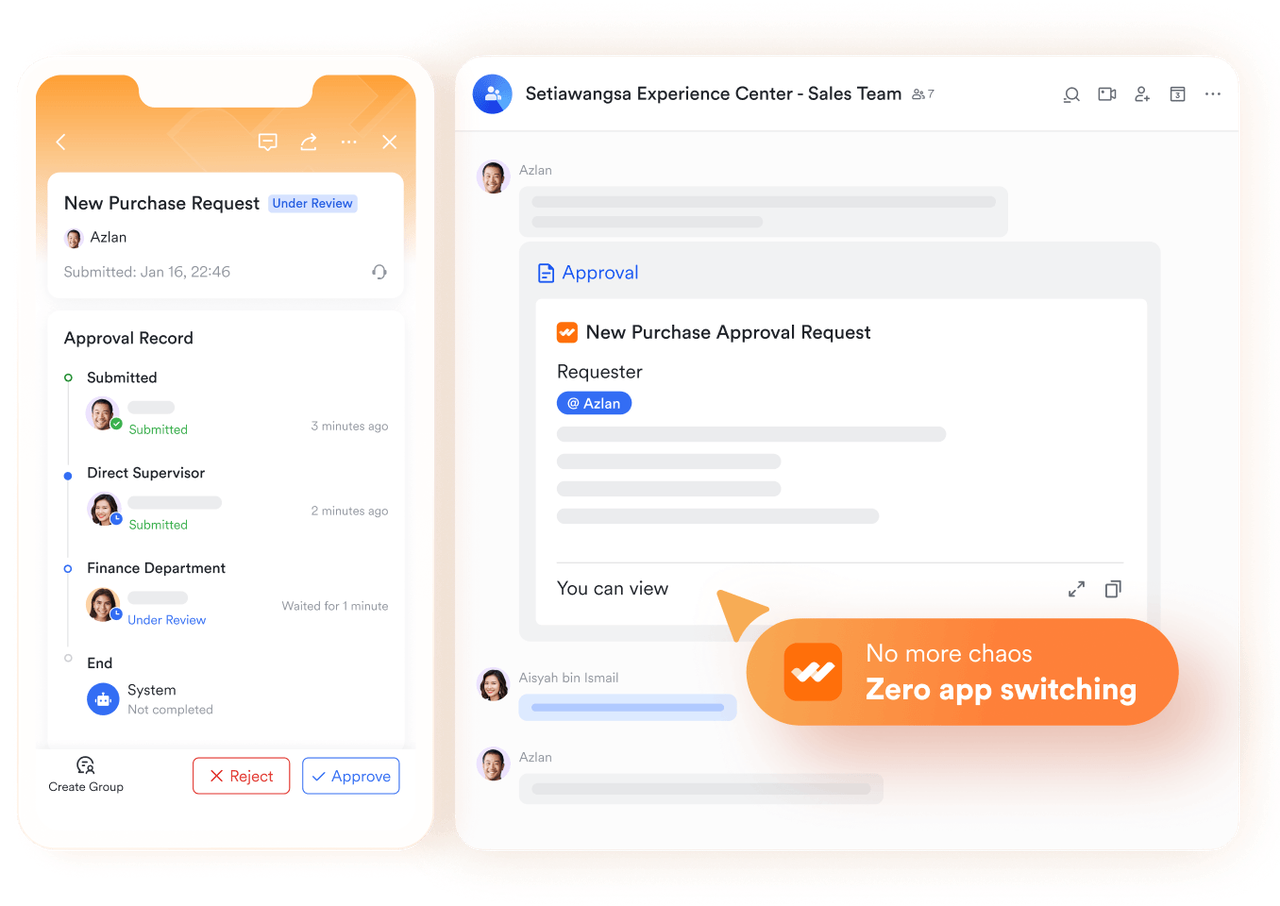
Standardized forms make it easy to ask for things, and a transparent flow helps leaders know what needs to be done. Role-based permissions keep sensitive information safe, while logs keep track of decisions that can be verified for accountability. An automated workflow makes sure that requests in Approval get through without any problems, connecting the right individuals at the right time with no delays. Notifications and reminders help people make decisions quickly and with confidence by keeping follow-ups from taking too long.
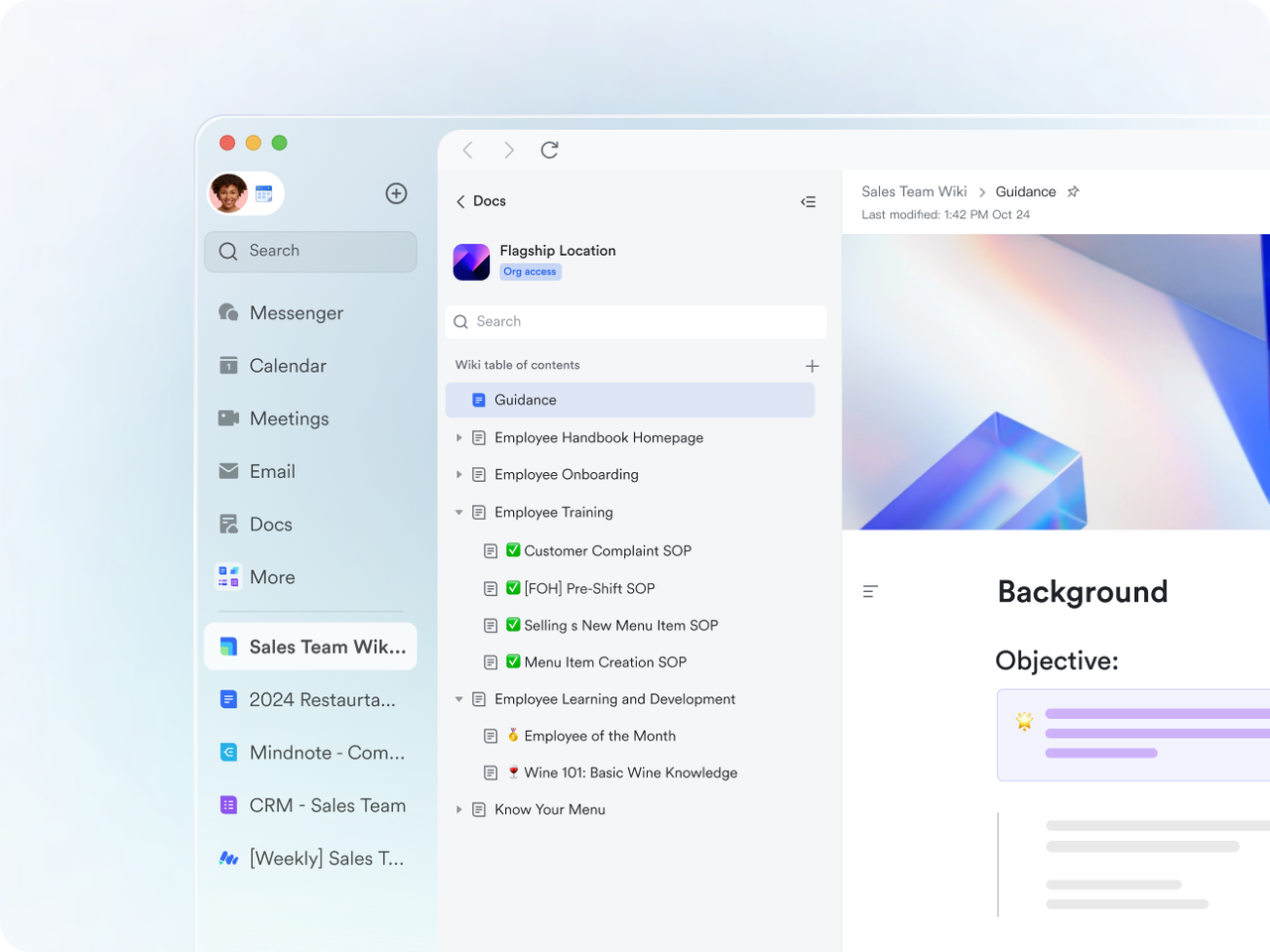
Teams can alter plans or reports at the same time, so everyone is always working from the same version. Inline comments help people understand what you mean, and version history lets leaders see changes and go back if they need to. Embedded content, such as Sheets or Base, keeps data that backs up the main story adjacent to it. Docs are a common source of truth that makes it easier for everyone to know what's going on when it's most critical to be clear.
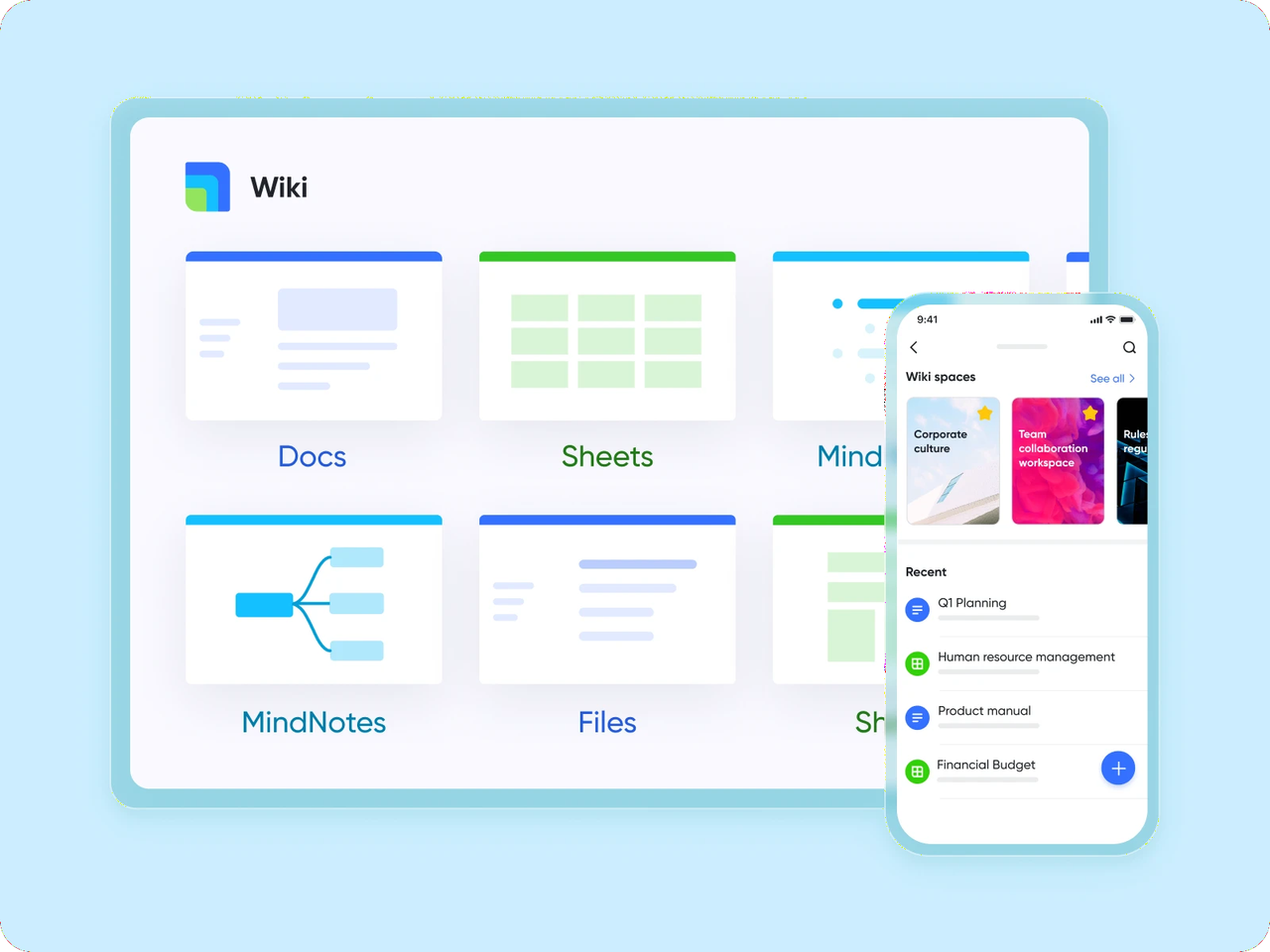
Workers can find the most up-to-date rules for dealing with a crisis, following the rules, or working with clients. Permissions protect private data, and quick updates make sure that the data reflects the most recent decisions. Instead of relying on memory or old data, employees can quickly find what they need by using search functions. Wiki keeps an organization's information safe for a long time, even when things go wrong.
Base frames data with CRM-like flexibility, Messenger makes it easy to talk to others, Calendar helps you keep track of your goals, Approval speeds up decisions with automated processes, Docs provide everyone access to the same information, and Wiki keeps vital information private. These methods change risk into preparedness, which means that businesses may act swiftly when things aren't clear.
It's evident that leaders need to be adaptable, and it's not just a matter of luck; they need to follow the rules. Not only can connected platforms minimize the risk for businesses, but they also help them take advantage of chances as soon as they come up.
Related Links| Subscribe Free To Our Daily Newsletters |

| Subscribe Free To Our Daily Newsletters |